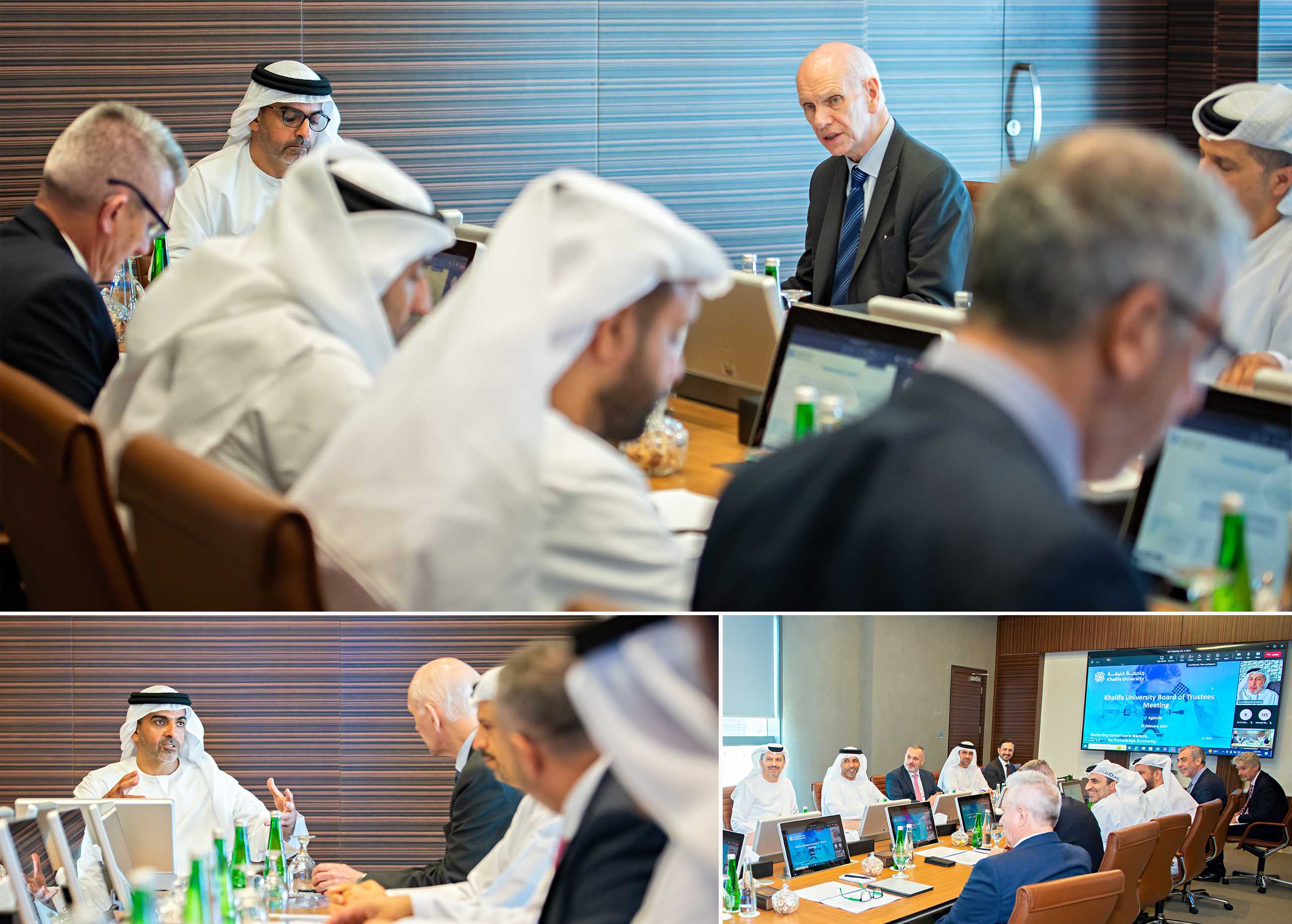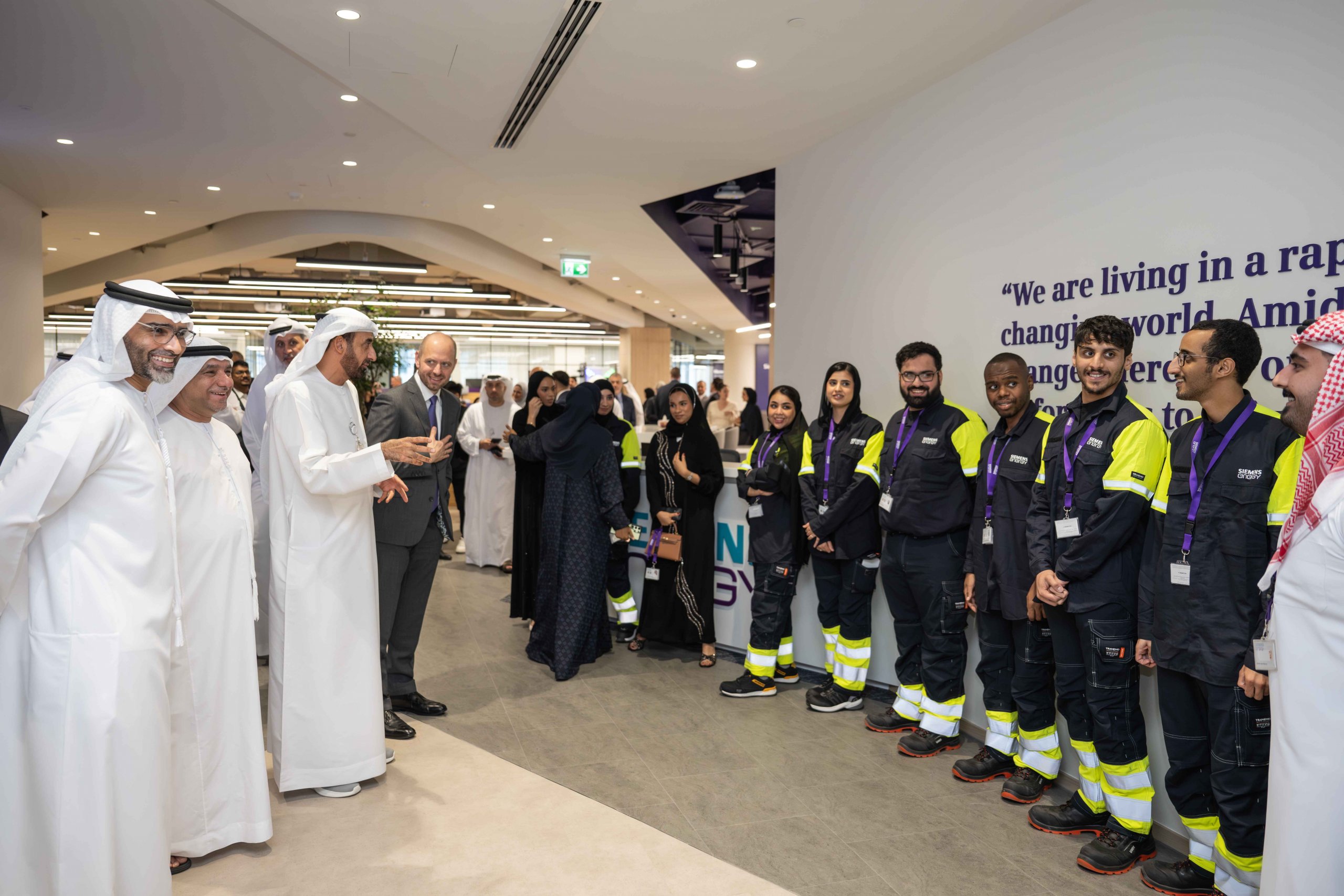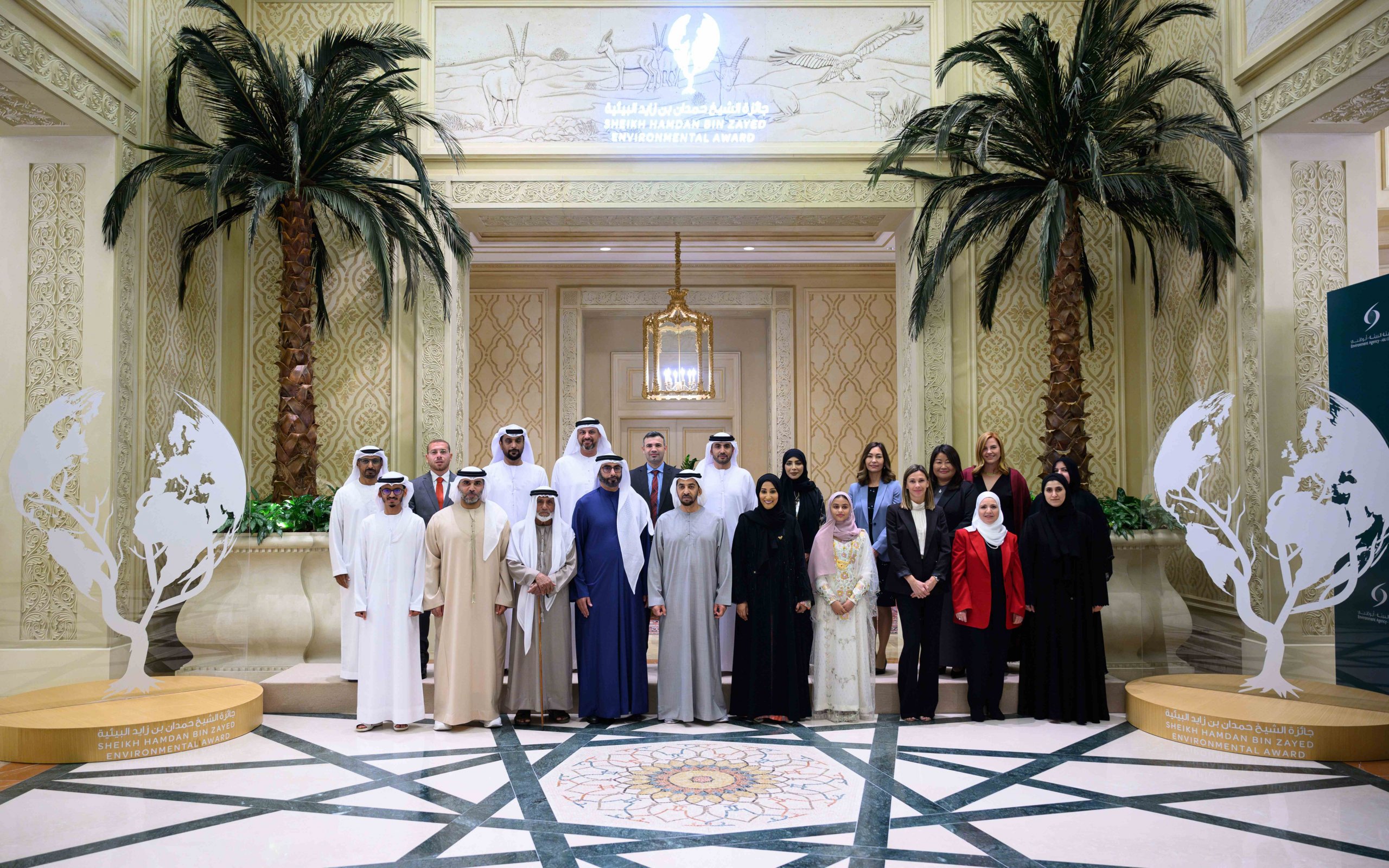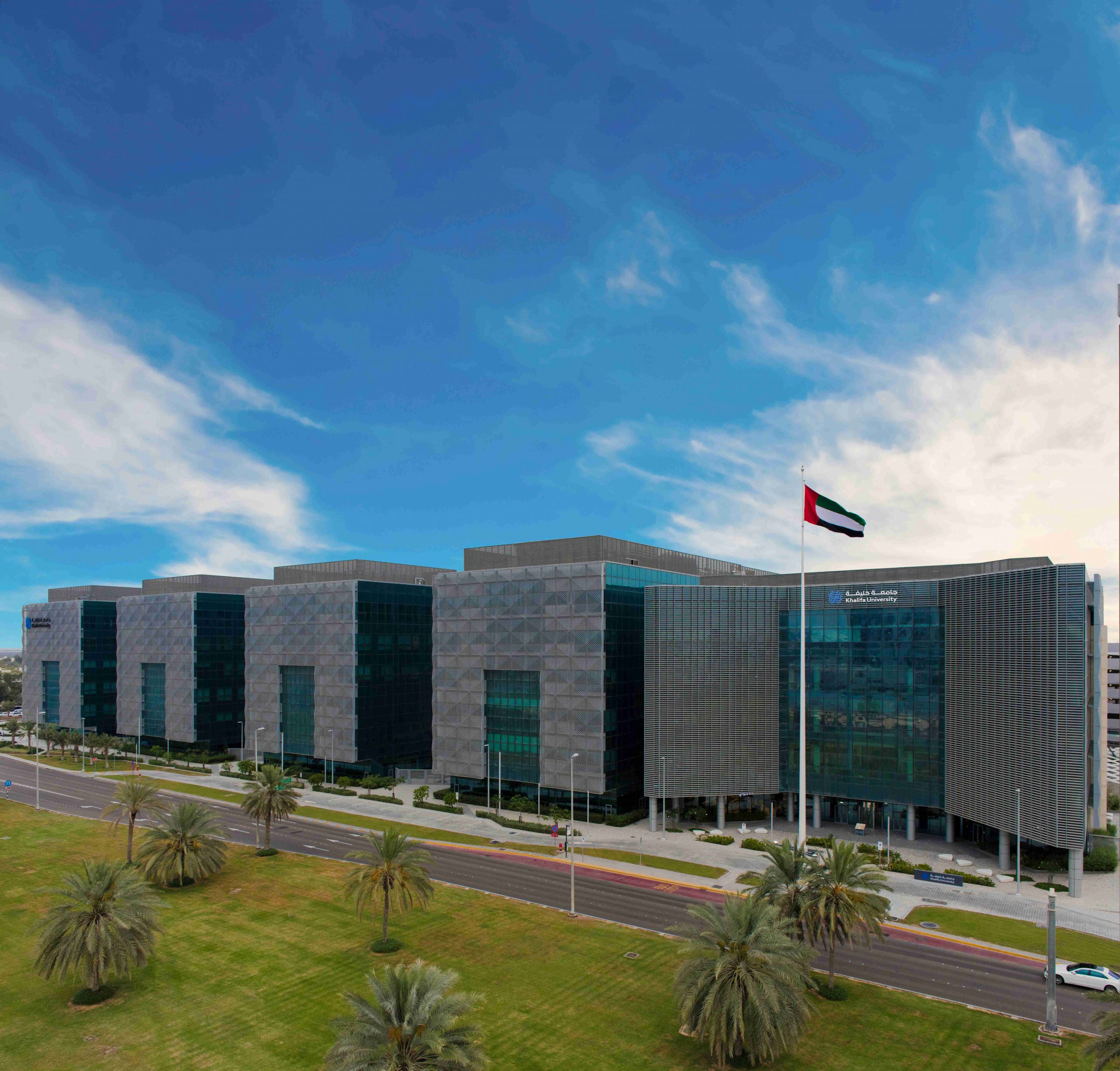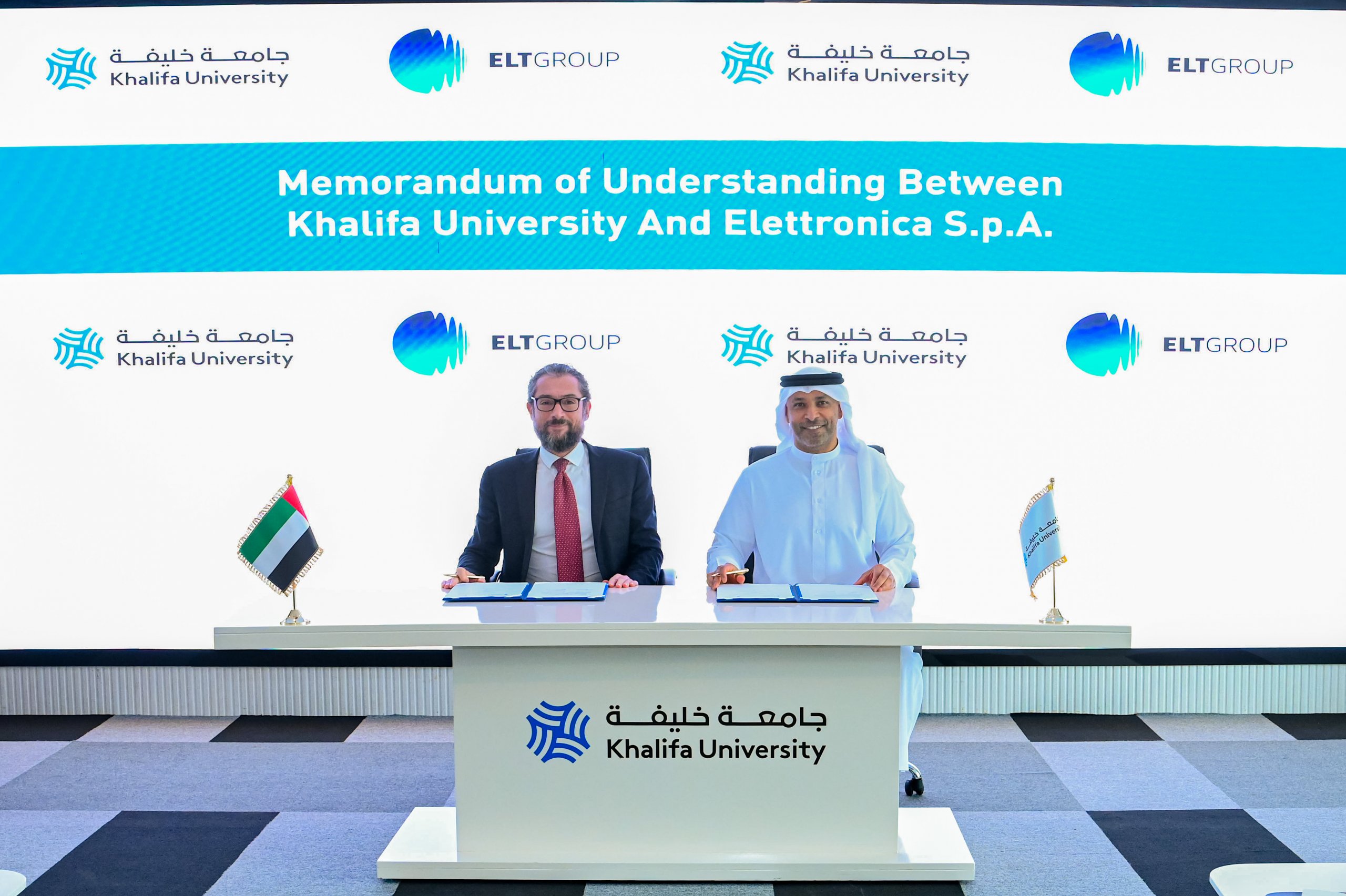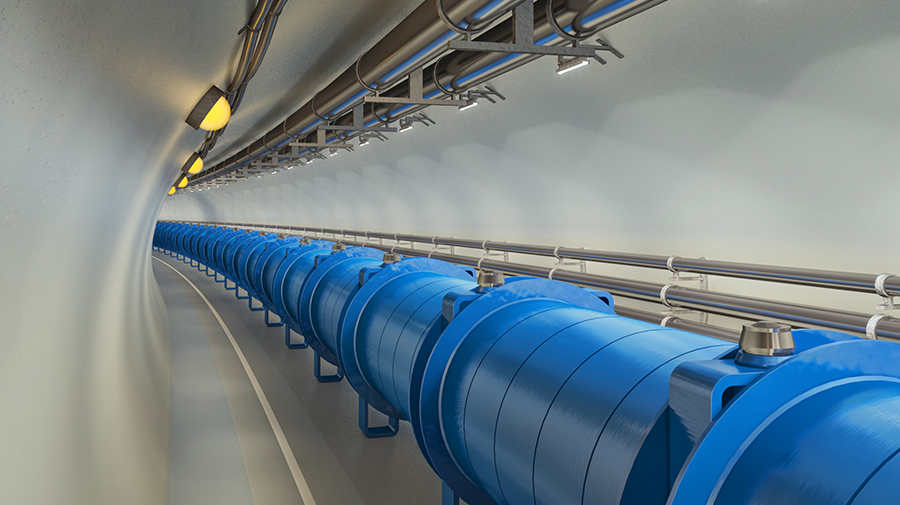
A Masdar Institute of Science and Technology faculty member and alumna are working to advance the UAE’s pursuit of scientific breakthroughs by leveraging the massive research potential of some of the world’s most advanced and precious scientific facilities.
Dr. Faisal Al Marzooqi, Masdar Institute Assistant Professor of Chemical and Environmental Engineering and PhD graduate, and Mejd Alsari Almheiri, a Masdar Institute Class of 2014 MSc in Microsystems Engineering graduate and current PhD student at Cambridge University, have established the first UAE Synchrotron Users Association.
A synchrotron is a massive cyclic scientific facility, often larger than a football pitch, where particles are accelerated to produce intense beams of X-rays. These beams can be as much as 100 billion times brighter than the sun, allowing for study of samples in incredible detail, making them extremely valuable research facilities.
“Access to synchrotron facilities has been limited by the fact that the UAE is not associated or holding membership to any synchrotron at the moment. Emirati researchers have previously only been able to access synchrotrons for research when the main investigator of the project is from a contributing or an associate member of a synchrotron facility,” Dr. Al Marzooqi shared.
There are less than 100 synchrotron facilities in the world, and access and use of them is often highly restricted. Gaining access to a synchrotron requires costly membership or rental fees that only the largest technology companies can afford, or competitive selection of a scientific proposal. As such, researchers in developing countries often find it difficult to get their proposals accepted, making paid synchrotron access the only other option available to them.
“Establishing the UAE Synchrotron Users Association is a valuable contribution to the country’s research and innovation ecosystem, as it will give scientists and researchers in the country access to some of science’s most powerful research tools. We are proud of Mejd and Dr. Faisal for their continuing efforts to blaze the trail for science and innovators in the UAE,” said Dr. Steve Griffiths, Vice President for Research and Interim Associate Provost of Masdar Institute.
The purpose of the group is to bring together the UAE’s scientists and synchrotron experts to explore how fields of relevance to the UAE can be advanced through synchrotron science and to develop the synchrotron memberships and associations that will provide access to the limited and highly restricted research facilities. The first meeting of the association, which is being sponsored by nanomaterial characterization technique provider XENOCS, will be held on 6 December at the Dubai Chamber, through the logistical support of the Emirates Science Club.
“We have been pursuing the establishment of this association for nearly two years and it is our hope that this group will enable direct access to synchrotron facilities for UAE scientists, which will aid the country’s pursuit of scientific and industrial excellence,” Al Sari explained.
The meeting aims to identify the needs of UAE scientists for synchrotron research, enumerating the various research techniques and types of synchrotron facilities to which access is needed. The next step for the group is to understand the best synchrotron options in terms of costs and benefits for the UAE.
Synchrotron light is used to advance research and development in many fields, including biosciences, medical research, environmental sciences, agriculture, mineral exploration, advanced materials, engineering, and forensics. It is believed organized synchrotron access would help accelerate the pace of innovation in the seven primary national sectors identified by the UAE National Innovation Strategy — renewable and clean energy, transportation, technology, education, health, water, and space.
Both Dr. Al Marzooqi and Almheiri are experienced in blazing trails in science. Dr. Al Marzooqi became the first UAE national to disclose an invention for a novel technology to enhance desalination techniques using nanotechnology during his doctorate studies at Masdar Institute and won the UAE Pioneers Award 2015 for his invention. AlSari fabricated the first polymer-based Organic Photovoltaic solar cell (OPV) in the UAE during her graduate studies at Masdar Institute, interned at the NASA Ames Research Center in the US during her Bachelor studies, and is a recipient of the President of the UAE’s Distinguished Student Scholarship Program for her current doctoral studies at the University of Cambridge. She was also a contributor to a research project that was conducted using the European Synchrotron Radiation Facility.
The establishment of the UAE Synchrotron Users Association is the latest contribution to the UAE’s research and innovation ecosystem from Masdar Institute and the activities of its faculty, alumni, students and researchers. The Institute has also trained over 250 external researchers in scanning electron microscopy at its Microscopy Suite to support and advance the country’s scientific community. It also launched the UAE Forum on Innovation and Entrepreneurship to connect innovation stakeholders and help improve the innovation ecosystem in the UAE. Masdar Institute was also a founding member of the University Leadership Council (ULC), established to act as a platform for academic leadership to share creative ideas, foster common interests, and spearhead new initiatives for innovation and technology transfer in the region.
Zarina Khan
Senior Editor
07 December 2016


